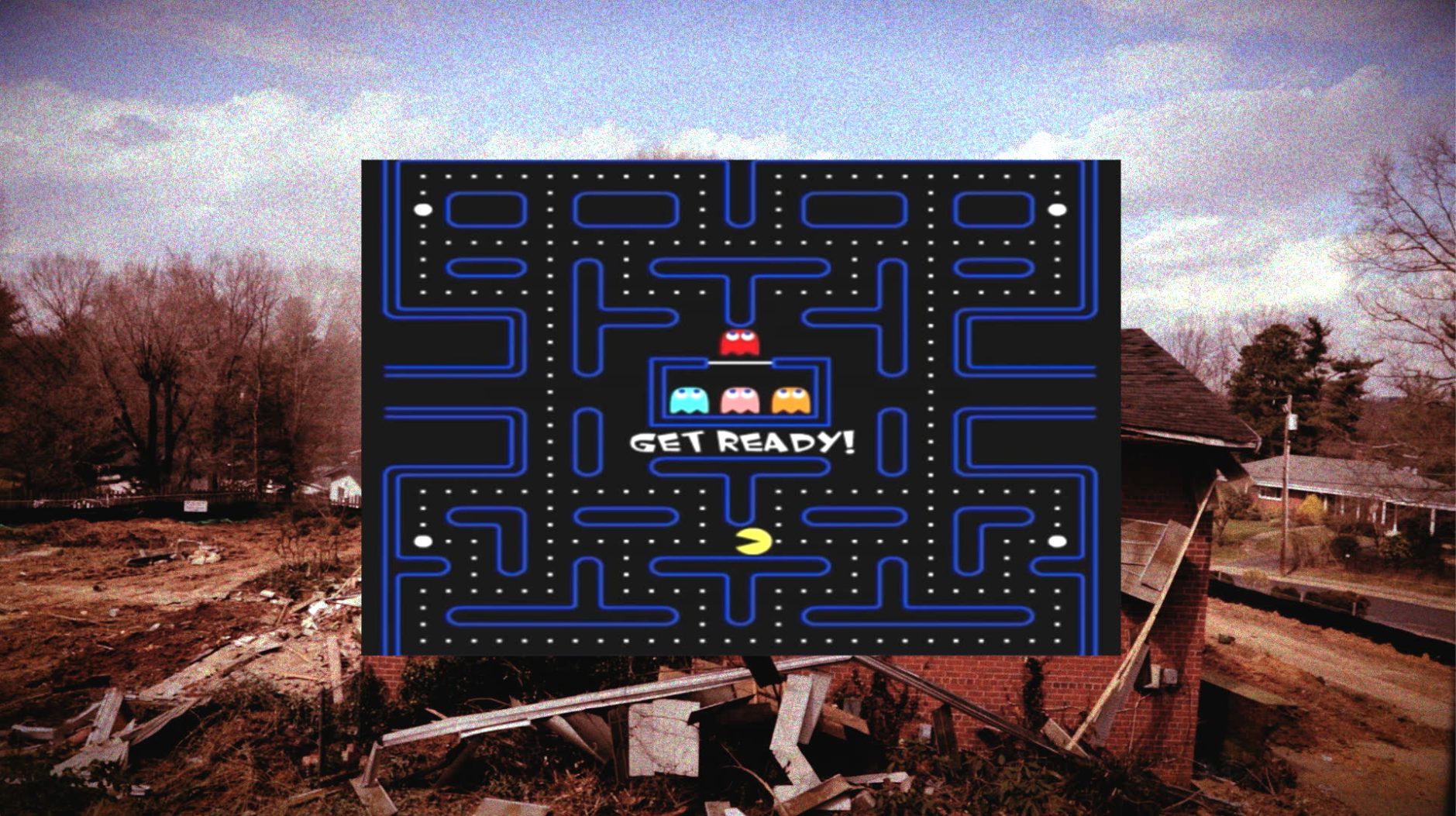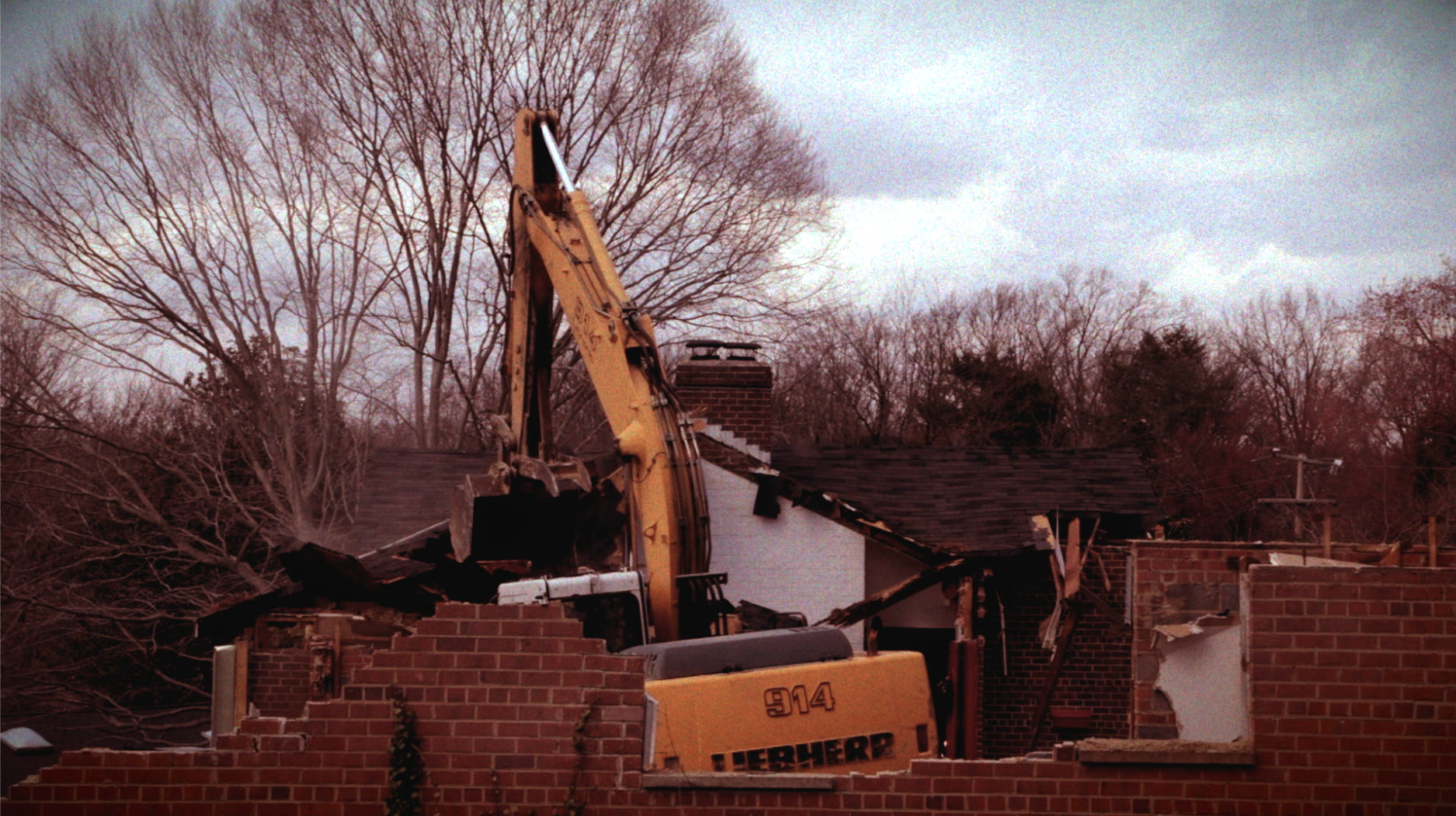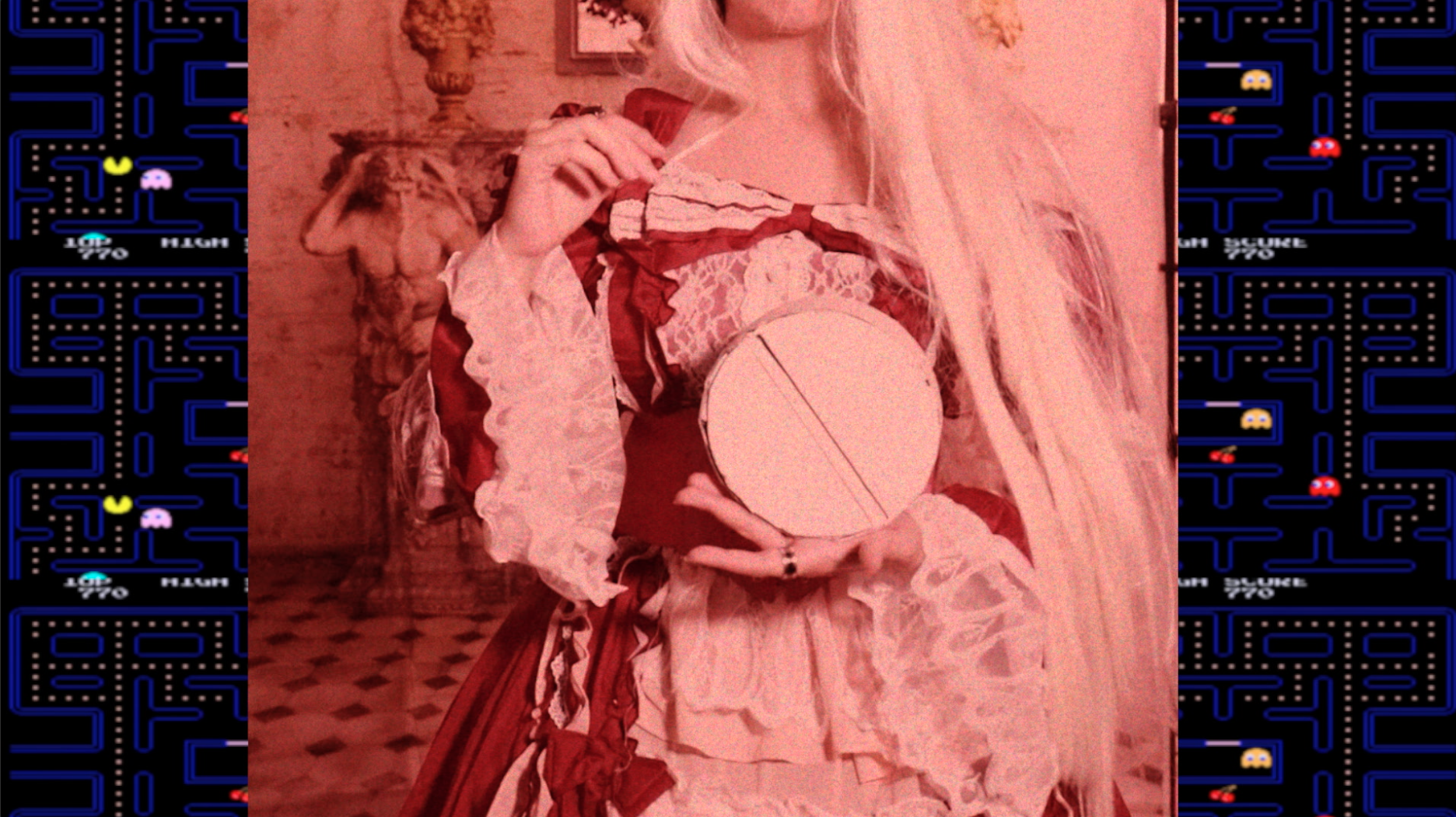StrangeLens, responder
Teardown: Arlington, Virginia
Lori Rottenberg
I.
We live in a place of stale-guilt, dry-bones—
the Clovis and Powhatan evacuated
for us long ago, the forests of pine, cypress,
cedar, hickory, walnut
long-cleared, the colonial aristocrats ceding
to yeoman farmers who sold
to purveyors of the brick-box American Dream.
Our land abuts the navel
of the universe, so close people hock
the sweet fruit of their next
30 years to live here, so close
to others I can see
what my neighbor watches after
dinner and smell when he’s overcooked
his steak on the grill. Our economy’s information;
we don’t have to dwell in unpleasantries:
scorched rainforests, glowing noxious
refineries, buried toxins
where the contents of my handy blue and black
county bins wind up.
Lori Rottenberg, caller
Keys
It was my first glimpse of her
insanity: I lost them and was exiled,
not because I couldn’t get in—
my mother was there to receive me,
an unexpected pope who I’d hoped
would issue comfort and absolution.
Yet her prayers were not for me
but the keys—that despite their anonymity,
they would lead malevolence to our doorstep.
She sent me to walk the decaying town alone
until sunset, crying and feeling with my hands and knees
like a penitent on the lawn of the elementary school
until I found their sharp, familiar
curves beneath my fingers. I plodded
back home in the dark, still alone,
happy to have found what I needed
but no longer sure the keys led
to where I was supposed to go.
II.
My husband says this place will be a teardown.
No one wants to save these
walls. The peach and brown penny tiles
of the hall bath, the tiny white
and pink squares of the master headed
to a landfill, the hopeful yellow
metal cabinets of the kitchen that showed
aproned housewives the promise
of tomorrow will be twisted and torn in the jaws
of the excavator, maybe saved
for scrap metal if we find the right
contractor, a little more conscientious than the rest.
The honeyed pine of the basement
is to be splintered and interred, left to rot
in its landfill tomb.
The roof replaced two decades
ago will be shredded and buried,
along with the new windows, useless
now, a shame, into the trash
they go, their shattering tinkling like bells
tolling. The sturdy rows
of ranch bricking to be chewed by stronger
teeth, broken—so easy,
so easy, so easy. Just like throwing
the takeout tins in the trash.
Take it away and start over!
The world is new again
and ours to remake; all it takes is gold,
and we will live forever:
for us, there will always be the next round,
we can buy a new gameboard.
III.
We get letters from builders named in doublespeak—
Classic-Cottages, Paradigm, Bella—
that want to buy our air, replace formica
with granite, brick with Arts
and Crafts clapboard. Our modest house
is in the way of the palaces to come.
We can throw the lucre we’ll earn like petals.
So easy, so easy, so easy!
IV.
And yet—what will eat the ghosts?
What will swallow the shadows
of our daughters playing in the pine rec room
past lunch on Saturday mornings?
Will the excavator eat the Thanksgivings for 15
in the undersized dining room
or the Scout meetings and tie-dye birthdays
in the cracked concrete carport?
How can the machine extract the scent
of endless loaves of bread
my gluten-free husband made for me
in the ‘56 kitchen, the tiny
buzzing stainless stove held closed
with a twist-tie? Will it devour
the love we have made in every room,
crunch our sugarspun dreams?
How can the digger savor the taste
of plaster and lathe walls
whose colors we chose and applied with such care?
Will the spirits of Vibrant Blush,
Caribbean Blue, and Mellow Yellow
be plowed under the earth with the rest of it?
V.
Our streets are transformed by the metal omnivores,
each sparkling chateau claiming
the daylight of its neighbors—casting novel
shadows and snuffing the future
of their unknowing roses and daylilies, their trusting
snowbells, cherries, magnolias—
our outdated world safely sepulchered
somewhere far from here.
The gold-dusted years will be enshrouded in the jumble
of shards and foam and wood
and tile and metal and colored plaster
dust, waiting, bleeding,
torn, outcast, as we kid ourselves
there’ll always be a tomorrow,
always be a chance to begin again.
Our expensive wanting costs
much more than a bank loan:
The price will be paid
by someone else’s oneday children,
maybe even our own.
StrangeLens, “Remember What the Doormouse Saw"
My videos are the aftermath of my dreams and distorted reflection of society. It's cryptic and contracting at times. I care about bringing the rich visual experience to the viewer. The rest is up to them when it comes to deciphering the content.
— StrangeLens



